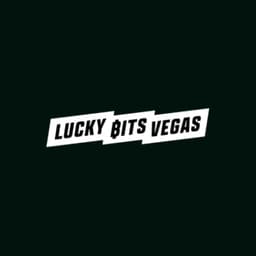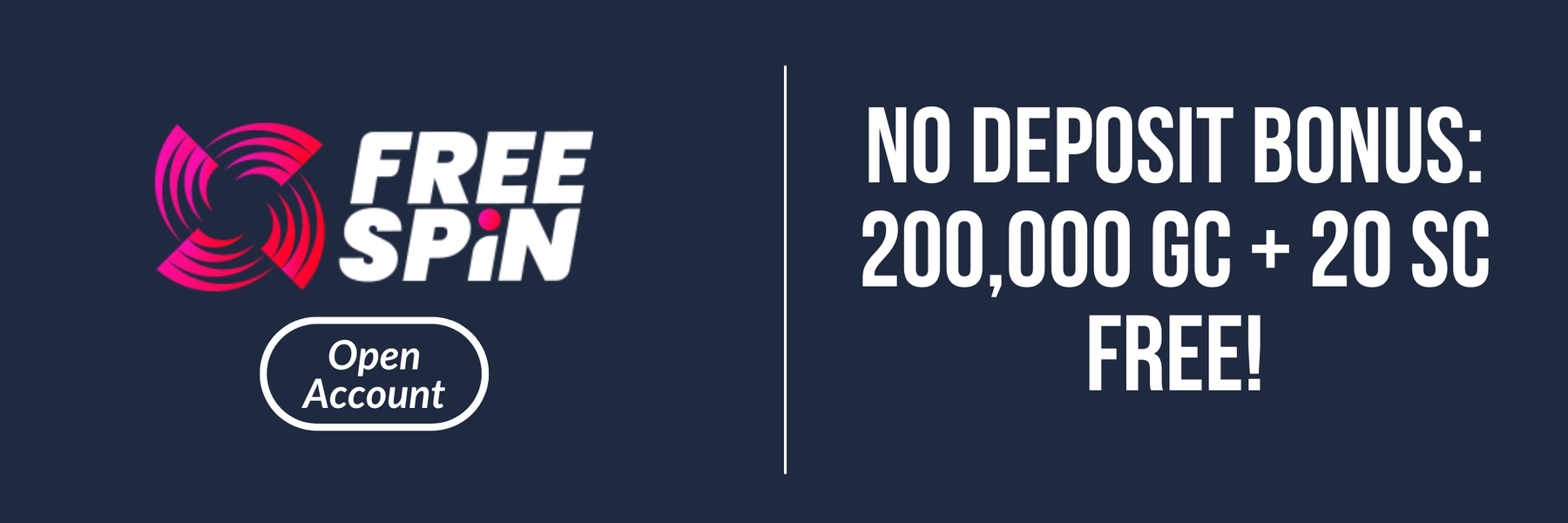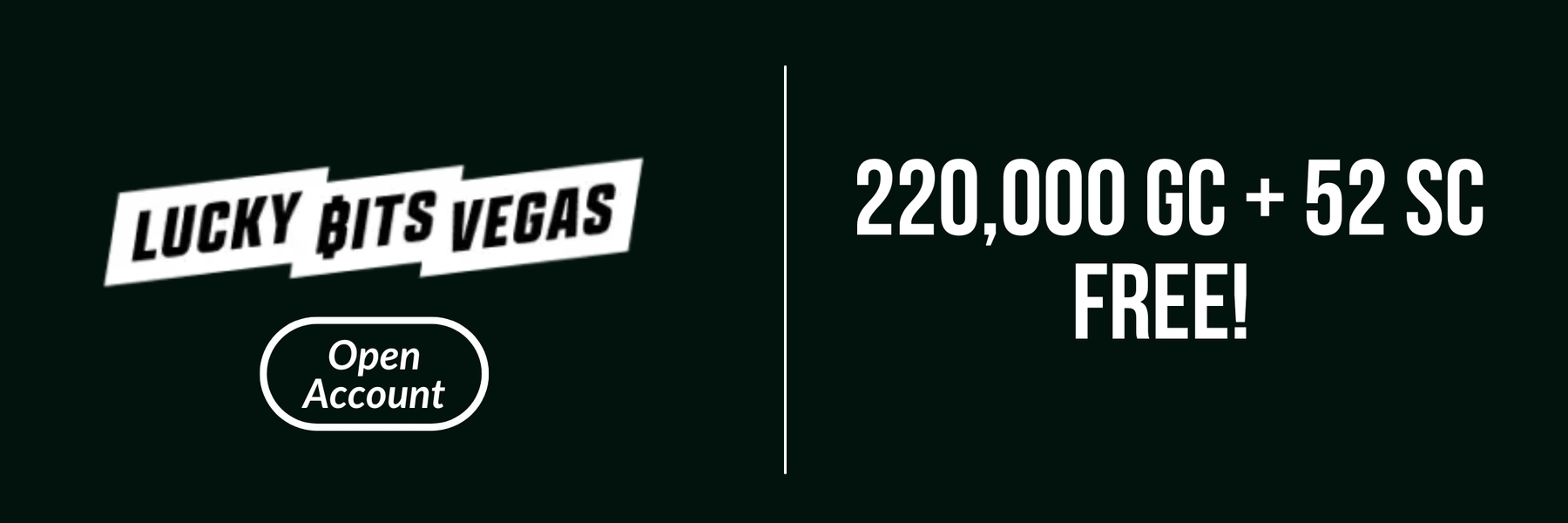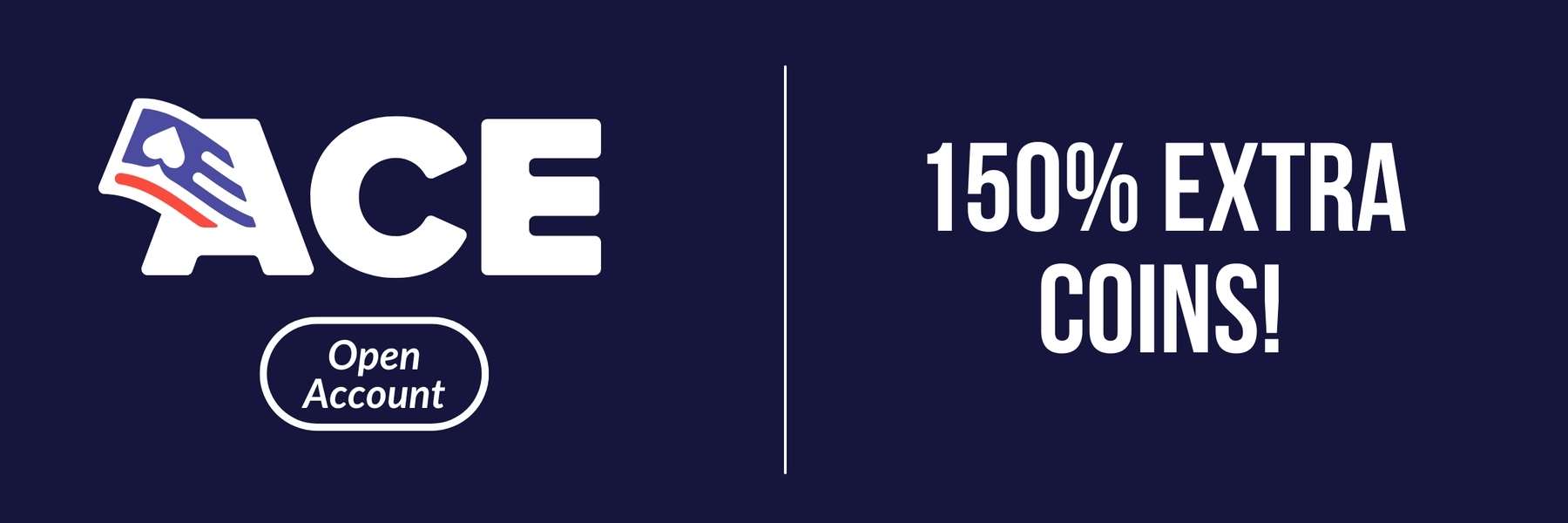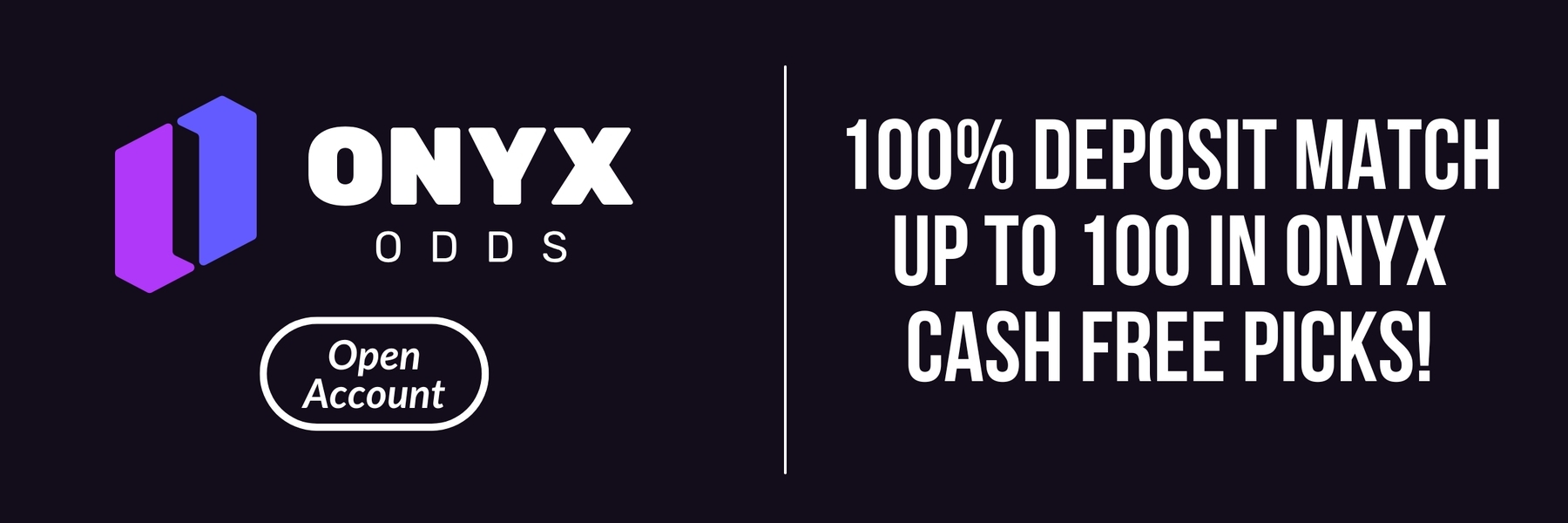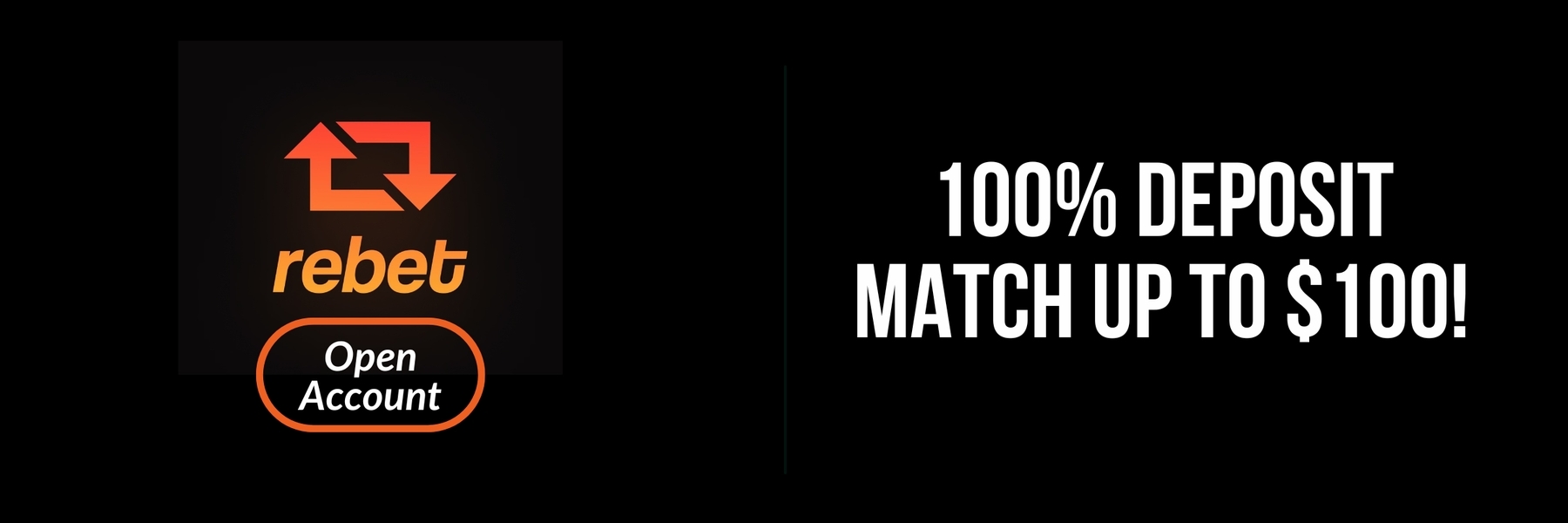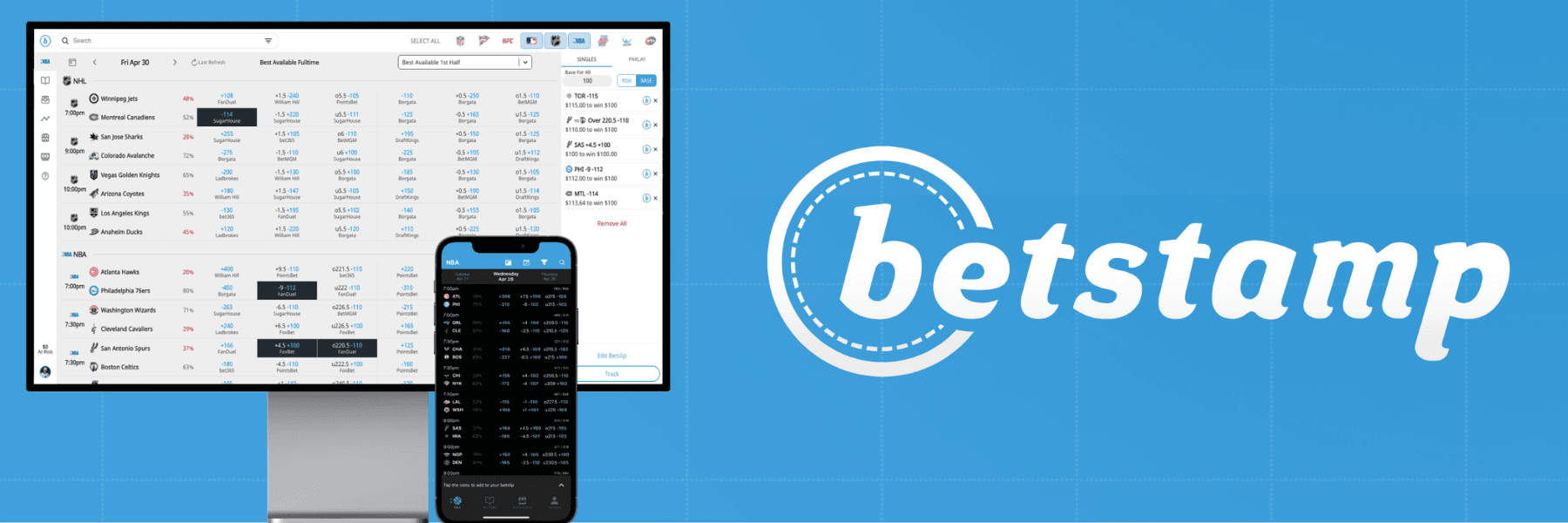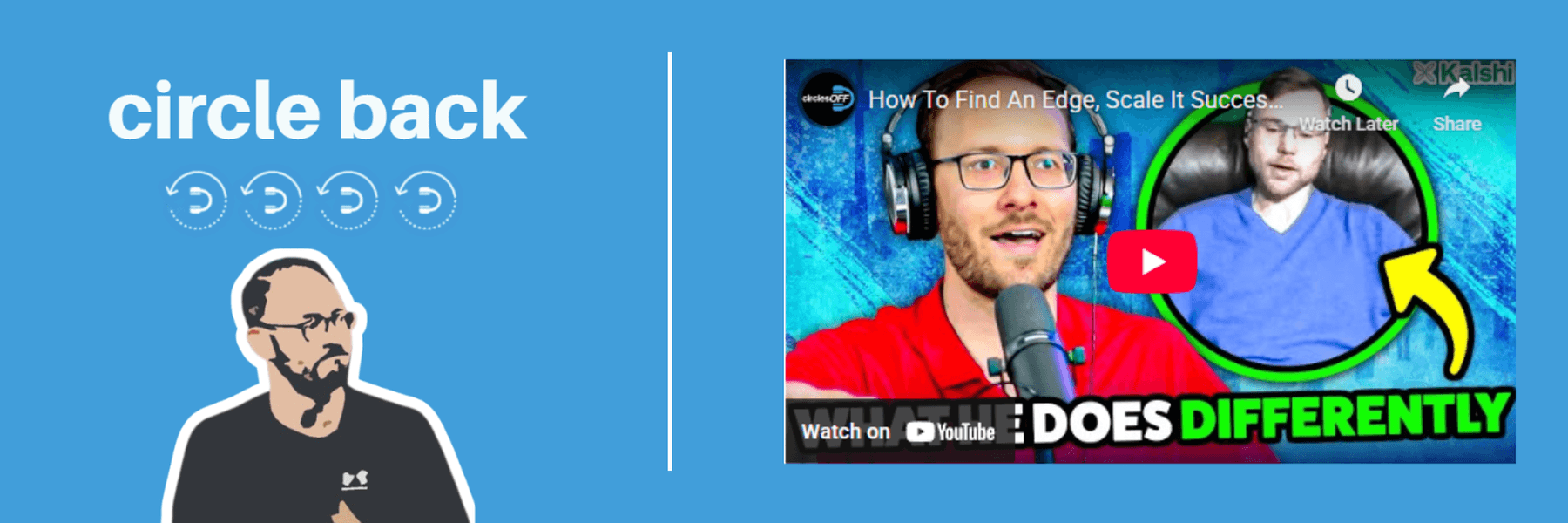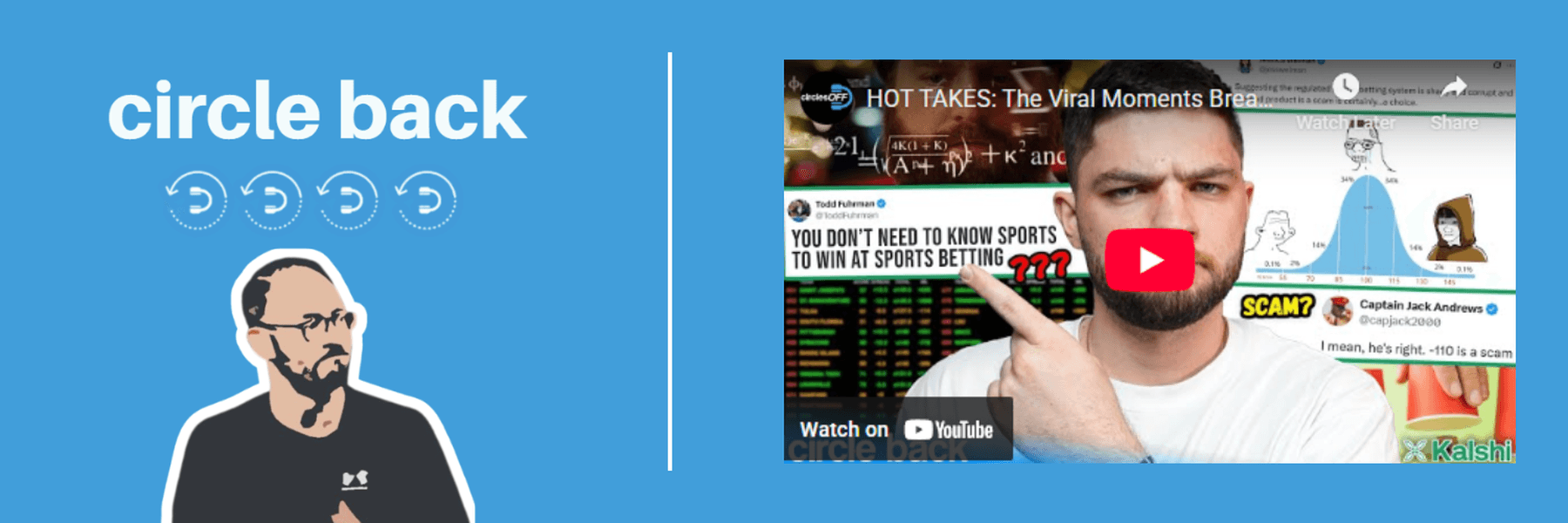00:00 - Dan Abrams (Guest)
Now, in practice, hitting the cash out button from the sportsbook is usually the worst way of actually cashing out, right, but the idea of doing it can often be correct. Come on, let's go. You think I'm going to come on here and put one of the oddies in the elite gear.
00:18 - Rob Pizzola (Co-host)
I'd vote for Rob of $25,000. I wouldn't vote for you. I can basically just cheat and get the same bets that they're getting. It's weird because you can also pay your bills at the same place where you bet. I mean, you're a short guy, what? This guy talks a lot of trash. He's talked a lot of trash about me, rob, a lot of people in the community, but he's refusing to show his face, coding yourself as a pretty good NFL gambler. I thought you were an idiot. Say he's refusing to show his face. Carding yourself is a pretty good NFL gambler. I thought you were an idiot. Say testing, testing. I'm a cuck. One, two, three, four.
00:49 - Dan Abrams (Guest)
Aussies going head to head with the Aussies. That's what I grew up for and I said, get him Kirk.
00:53 - Rob Pizzola (Co-host)
And they call me a mean-spirited name. I don't hang out with them.
01:06 - Dan Abrams (Guest)
The Toronto.
01:06 - Rob Pizzola (Co-host)
Maple Leafs at 14-1 are staring me dead in the face. I'm already getting you know a lot of early. This could be the best Circles Off episode that's ever been done. Welcome to Circles Off episode number 181, right here, part of the Hammer Betting Network and presented by Pinnacle Sportsbook. I'm Rob Pizzola flying solo today Well, not solo Zach Phillips behind the glass in studio with me Guest episode coming up.
01:28
Very much looking forward to this one. A lot of betting strategy to be talked about. Circle back this week. Very well received. Appreciate everyone who gave feedback on that show. I know some people really like the long format.
01:41
I don't think we can commit to a couple hours every single week because it's time intensive, but the content writes itself and it was a very interesting week in gambling Twitter. I missed out on some stuff last minute while we were recording. That'll, of course, get into next week's episode, so you can be certain we will cover the biggest talking points on gambling Twitter, as always. Hashtag circle back. If you want to tag us on Twitter, you want us to talk about the show. We review the hashtag every single week and we do try to incorporate as many of those elements into the show as possible Before we get into this week's episode, we're going to talk a lot about bankroll management, some betting techniques, a lot of betting education and, primarily, price sensitivity as well. If you are a price sensitive, better meaning you're a serious better. You got to check out Pinnacle Sportsbook In business for the past 25 years.
02:36
They offer low margins on betting and that makes a world of difference. Betting a team at plus 120 instead of plus 110, that matters. Betting a team at plus 120 instead of plus 110 that matters. Betting minus 110 instead of minus 120 that matters. All these things add up over time. Whether you're winning or losing, you win more, you lose less. It's that simple. So take advantage of pinnacle. If you are in canada, head over to pinnaclecom slash hammer. I've been betting there for a long time. I highly recommend them as a book, Very reputable in this space. Again, Pinnaclecom slash hammer. You must be 19 plus not available in the US and, as always, please play responsibly.
03:18
Specializing in RAS and now making waves in the sports betting world as well, With years of experience training others in poker strategy, our guest has transitioned his analytical mindset to sports betting, focusing on a mathematical approach to many different things, including bankroll management and profitability. He's the author of an upcoming book called but how Much Did you Lose? How to Win More at Sports Betting by Losing Less, which introduces his innovative root unit staking system, which I'll ask him about. You can follow him on Twitter at Dr Raz WSOP. I'm excited to dive into his unique perspective. Today, Dan Abrams joins us on Circles Off. Dan, how's it going? Good, Rob.
04:01 - Dan Abrams (Guest)
Great, how are you?
04:03 - Rob Pizzola (Co-host)
It's good to have you. I've been looking forward to this conversation for a long time. We've interacted on Twitter for many years, so I know your background story, or at least I think I do. But welcome to the show. For those who don't know you or may not be familiar with you, can you share a bit about your journey, originally beginning with poker and then how you got into sports betting?
04:25 - Dan Abrams (Guest)
your journey, originally beginning with poker and then how you got into sports betting. Sure, yeah, it was way back in 2003 with the moneymaker boom in the online poker world. I started to get into poker just kind of, you know, watching it along on ESPN with everybody else. I had played poker my whole life, just as like a fun aside with my friends, but never for money. I wasn't much of a gambler at all Maybe been to a casino twice in my entire life but, you know, watching these episodes everybody got all excited about the prospects of this new online poker boom. So I I joined a couple of the the og sites back even before that existed, even before poker stars, uh, and just started dabbling in it, uh, and realized that, well, most of the players playing for like 50 cent a dollar aren't quite as good as the guys you see on TV. So I managed to scrape together a bankroll and started playing just, you know, a few hours, like nights and weekends, because, you know, I had a family and a day job and it wasn't going to be anything big, it was just for recreation. But you know, eventually Full Tilt Poker opened up and they had a huge advertising campaign. They started spreading a lot of the other games and really trying to push that besides the no Limit Hold'em. So I was like, oh, let me check this out. I knew five card draw. I knew seven card stud. So I just started playing them for for micro stakes and having fun with it.
06:08
And I got a period of a few weeks where I was trying to play stud and I was just totally card dead, just could not get even a starting hand worth playing, uh, and I was like, well, this really sucks. But I heard about this game called Raz, where it's the opposite of stud. All the bad stud starting hands are good. So I was like, all right, let me give that a shot and see if I can change my luck. So I did and I started playing and I was pretty successful at the microstakes. Right away I really got the hang of it. But I tried to grind my way up and I would get up to like $3, $6. It's limit betting, not like no limit. So $3, $6 is not that big a gain. But I would get up to $3, $6 and I would just get hammered every time. It was just terrible. I would lose every single time and I went out and tried to.
07:06
You know, look online and see. You know what kind of Raz educational resources are there for a guy like me just trying to be able to hang with the better players at these low stakes games? And there was very, very little. I mean, there was a chapter in super system which is doyle brunson's book, which is a great chapter, but it's like seven pages long. Um, and there was, uh, sklansky on raz, which was a book by david sklansky of two plus two publishing, and so it actually got morphed into this book, sklansky on poker. So I got a copy of that and I was like, okay, I'll just study this and I'll figure out exactly what to do and I'll win right away. And it helped. It definitely helped, but it wasn't making a huge difference. The games he was describing were nothing like the 3-6 online games at the time.
08:04
So I started trying to analyze some of the things that he was talking about in the book and some of the things where he would give a vague answer. He wouldn't even give like a mathematical answer to it, believe it or not. So you know, I looked into some of these things and in a couple of cases I out like the the answer is basically the opposite of what he was saying.
08:29
um, and so I was like I wonder who else like knows about this, because if anybody is looking to learn raz, this is pretty much the only book you can go to to read about it so I went to the two plus two forums which were huge at the time and made an account, started talking to people there and a lot of people there had no idea that there was any anything wrong in the sklansky on raz book. They were just like, oh, this is the greatest book ever, um. So I started to delve into it a little bit more and I figured out there's a lot more to this game than people really seem to realize. And after a while you got all these training sites cropping up.
09:15
There was Card Runners Poker X Factor, which was started by Bax and Sheets, if you remember those guys, and I actually got through kind of some twists and turns. I got offered to start making instructional videos for Raz and I thought, oh well, maybe make three or four videos and they'll have their fill of Raz training and that'll be the end of it and it'll be fun and I'll make a little bit of money on the side. Well, it ended up going on for years and years and years, because I started with Stocks Poker and then they got bought out by Card Runners and then I put out a series on my own after that and it turned into about 75 videos of instruction purely on rats. So it really took a left turn at that point.
10:14 - Rob Pizzola (Co-host)
I mean from Hold'em, which was as big at the time. I used to play like a home game with friends, and you know Hold'em was a thing. It was Moneymaker Sammy Farha, like that. That world series of poker got us booming and then, after three or four years, people started to get sick of it. It's funny, because we never really talked about this. This is our first like longer interaction, but the home games I used to play, we transitioned to a dealer's choice after a while, and I my dealer's choice is always razz um, because it was a game that no one else knew how to play and, candidly, looking back on it now as well, I probably didn't either, but I understood understood a lot of the math, a lot better than other people at that table at the time. It's pretty interesting, though, that you connected with this specific game and continued to learn it.
11:06
I see a lot of times, especially in the poker space, people get to a point where they max out. It's like, okay, I can beat this $0.50 game, I can beat this 1-2 game, I can beat this 2-5 game, and then they get to a point where like, ah, I can't beat this game, so what am I going to do? I'm just going to go back and play at the stakes that I know that I can beat, or I'm just going to give up. Interesting that you were dedicated enough at that point to admit to yourself I can't beat this 3-6 game right now, but I actually want to figure out a way to do so. So I'm curious did you have success for many years after that? Do you still play Raz at this point as well? Raz?
11:42 - Dan Abrams (Guest)
at this point as well.
11:43
Unfortunately, I didn't have success for many years after that because, mostly because of Black Friday hit soon afterwards, so that kind of shut down PokerStars and Full Tilt for American players and there were some other sites that you could log on to as an American, but none of them had RAS.
12:06
It was all no limit hold'em. So at that point I kind of had to take a break from that and really didn't play poker or do any gambling for many years after that and until COVID hit in 2020 and I was, you know, I still had my job, but I was on work from home duty for about three months, so I wasn't commuting or anything like that, and I would. They had just opened Poker Stars legal site in Pennsylvania where I was at the time. So I was like, well, I wonder if they have any Razz games. You know, as soon as my work is done, I can go see what Razz games may be going on. And they actually did have some ring games that would spring up and then they would have tournaments a couple of nights a week that you could play in.
13:02
So I kind of got back into it that way, with a little bit of extra spare time and the reincarnation of PokerStars on the legal side.
13:13 - Rob Pizzola (Co-host)
Where does sports betting fit into the equation? Was this post Black Friday that you started to get into sports betting, or was this more of a recent development, maybe through the COVID years as well?
13:25 - Dan Abrams (Guest)
Yeah, this was completely a recent development. It wasn't until I started playing Raz again during COVID that it even crossed my mind, because the whole time I had been playing poker you would talk to people and you would see other successful poker players who would lose all their money betting sports, other successful poker players who would lose their all their money betting sports. Yeah, so I was religiously of avoiding betting sports, uh, because I didn't want to fall into that trap. And you know, once I started playing Raz again, poker Stars was aligned with Fox bet, so they would give you all these promotional uh odds boosts and special offers and stuff like that through the same app, promoting all the Fox Sports betting. So I kind of dipped my toe into that a little bit. And then I started talking to some of my poker friends, including Eric Rodwig, who was a very successful poker player as well and he had a lot of experience betting sports. I was like, yeah, maybe it's time for me to start getting into this too.
14:29 - Rob Pizzola (Co-host)
Yeah, so sports betting is challenging to get into because it is a world filled with misleading information, tough to separate what's good from bad. There's tons of opinions in the space, some of them from people that are considered to be respected, people that are often wrong. So, as a newcomer to sports betting, how did you filter through all of the noise in the early going to find out what actually works in the betting space?
14:58 - Dan Abrams (Guest)
well.
14:59
I was really very fortunate because, you know, I knew Eric very well and I leaned on him a lot.
15:04
He gave me a lot of good advice and when there were things that he didn't know or he wasn't sure about that I was asking, he sent me to a mutual friend of ours, andrew Renhak, who was also a poker player and a sports better and he had actually put together a small website doing bankroll simulations and Kelly calculator and all these sorts of calculation tools probably before just about anybody and he had a calculator tool where you could devig the lines that you could toggle between doing it, the traditional method, which is you know what's, you know the equal margin type of method that most people will use. And then he had an alternative method which was based on the probit scale, that plus EV analytics your friend from up there in Toronto, toronto, was the champion of many years ago and had a link in there to go check out some of Plus EV's postings and articles. So just kind of walking down that path, I got exposed to his work and I was like, wow, there's a lot going on here that I had no idea about and.
16:24
I really wanted to find out.
16:25 - Rob Pizzola (Co-host)
Yeah, previous to poker sports betting. Did you have, like, a mathematical education? Do you come from a math or stats background?
16:34 - Dan Abrams (Guest)
Definitely math. I'm an electrical engineer for my day job. This whole time I've been a working engineer, so I had an awful lot of math in school. A lot of it didn't actually end up getting used in the job. It was all computerized by the time I got to actually working but went through a lot of calculus and all that sort of stuff. So I had a very good background there.
17:04 - Rob Pizzola (Co-host)
All right, that makes a lot of sense. I just was curious. I'd never heard you talk about that before. I do want to talk about your upcoming book. Let's dive into it. But how much did you lose as your title of the book? Why did you choose that title and what message are you trying to send with it?
17:22 - Dan Abrams (Guest)
Well, it's a common phrase that you hear playing poker and it's got kind of a dual meaning really. You'll have people who don't play poker or don't understand the game necessarily might say, well, you know, oh, you won $500 last night, but how much did you lose? Like, can you really sustain winning at poker? Isn't it just all luck and you're going to win 500 today, you're going to lose 500 tomorrow. And then poker players kind of took it and ran with it and said, okay, well, yeah, sure, you won $500 today, but that took, you know, 15 buy-ins at $20 a pop, and so how much did you lose to get to that cash? And so it's. It's. The meaning is kind of like you can't just look at your wins, you have to always account for your losses as well. So that's the kind of thing that I wanted to emphasize.
18:17 - Rob Pizzola (Co-host)
The concept of winning more by losing less is intriguing. Can you elaborate a little bit on what you mean by that?
18:26 - Dan Abrams (Guest)
Sure, you know, whenever you have a field like sports betting or even you know, poker or any kind of risky investment opportunities, there's always going to be ups and downs, there's always going to be wins and losses.
18:46
And the best way to ensure long-term winning is to limit the big losses, because a big loss hurts you twice.
18:56
First of all, you're out the money, which stinks, but then you have a much smaller bankroll with which to make a bet or make an investment when the next good opportunity or the next plus EV opportunity comes along.
19:11
So it really dings you twice when you have these big losses and when you're talking about growing your bankroll from a modest size starting out to something a lot more lucrative, when you are winning and losing, say $100 bets, that's going to be very significant when you have a small bankroll. But once you roll your bankroll up to $20,000, $30,000, something like that, $100 bets aren't going to make much of a difference. That's because these things scale on a geometric scale, a multiplicative scale. Oh, winning 10% at a certain bankroll size is what counts, not whether you win $100 or whether you win $10. So you know, the losses are not really equal to the wins If you lose a hundred dollars versus winning a hundred dollars. You know, if you have a 50K bankroll it's pretty much the same on either side. But when you only have a 1K bankroll, that a hundred dollar loss hurts a lot more than the a hundred dollar win.
20:18 - Rob Pizzola (Co-host)
Yep, really well said. I've been through a little bit of your book which you sent to me beforehand, and you've done some writing for the Hammer in the early going. Dan's articles are over at thehammerbet. But I want to talk about one of the book's highlights, which is the root unit staking system. So we talk a lot and I've done a lot of educational material on staking systems. Before you have your fixed staking systems, whether that's flat betting or percentage staking, you have the variable options, kelly criterion, confidence-based staking, depending on what you think your edge is. You have a bunch of nonsense, like Martingale as well, that is, that is in there as well, which obviously I you know I don't condone. Um, before we get into what the actual system is, what inspired you to create a different staking system and how does it differ from the more traditional systems that are used in the sports betting space?
21:23 - Dan Abrams (Guest)
yeah, well, the the inspiration really came from the work of Joseph Buchdahl, who was a great sports betting analyst and author over in the UK and he did a series of articles on the Pinnacle blog. He's written several books really really good stuff and he took a look at a. He's basically studied a sample of about 50,000 European soccer matches where he compared the the best price in the market that you could get to to bet on, compared that to the closing price and to the results that he got just by tabulating the outcomes of the games, and he was able to show a trend between the amount of edge that you could get by using the best price in the market versus the odds that you were betting it at versus the odds that you were betting it at. And he made a graph of this and he had a very complicated formula for how to come up with that result. But I took a look at the graph and I said it kind of looks to me like this is a square root function. So I looked into it a little bit more and he, being European, he had done his work in decimal odds, you know 2.0, 3.0. Right, so I just translated it to fractional odds. You know, 1 to 1, 2 to 1, 3 to 1. And I graphed it up in Excel and I took a look at the curve and I did like a curve fit with a square root function and it was an exact match and I was like, wow, there has to be something here like this is not a coincidence. Um.
23:11
So I delved into it a little bit more and I realized that there really is a a force in the market that once you get the odds far enough off of the true line that they're going to exceed this limit in how much edge that you can get, the odds are just going to disappear. They're going to be so good they're going to be snapped up instantly and odds are you're not going to be able to get down at that price. So, realistically speaking, there's a limit to how much edge you can expect at any given odds and it may be different in different markets, but the ratio between what you can expect at plus 400 versus plus 100 is basically going to be the same from market to market. You just may be able to find two percentages at plus 100 in the NFL maybe 3%, in the NHL 5% on player props but as you scale the odds from plus 100 to long shots or favorites or whatever. They all seem to follow this same trend.
24:26
So that kind of inspired me to say, okay, well, if you can put together a staking system that just says stake your bets based on what you would normally stake at plus 100 or minus 110 or minus 105, if you can get it and just scale that based on the square root of the odds, you're basically going to track what the Kelly criterion would tell you to do. If you did actually know your edge, and if you're getting the best price in the market, you're going to approximately track that edge automatically.
25:02 - Rob Pizzola (Co-host)
Interesting. Yeah, that makes a lot of sense. Just working through that in my head, through some actual real life examples of stuff that I would bet and logically that works for a lot of systems. Now I will say I understand where you're coming from here and a lot of our audience here at Circles Off would be sharp bettors who immediately can pick up off of what you said there and say, ok, yeah, I can work through that. There's going to be a lot of other bettors, whether they are recreational, semi-sharp or even sharps, that let's's say maybe are intimidated by anything. That's a math heavy type of system. How does this make things easier for the average? Better?
25:56 - Dan Abrams (Guest)
Well, it's kind of a simple concept to do. I mean, I think most people you know have a somewhat of an idea of what square roots are, even if they don't use them all the time. And the nice thing about it is that this is one of those situations where you really can approximate what you're doing without having a really poor outcome. There's some things in sports betting where you've got to nail a percentage down to within plus or minus half a percent, otherwise you're really it makes a difference between having an edge and having no edge at all. But in this case you can just approximate, so you don't even have to go and calculate it every time. You can just kind of go by rules of thumb.
26:45
In the book I put a table together for people to look at, but it's not that hard to remember that. You know, if you're going to be betting at plus 400, then the square root of four is two. So you want to divide your unit size by two compared to what you would bet at minus 110, minus 105 in the same market. On the opposite side, if you're betting, uh, somebody that's the big favorite at minus 400, you want to use two times your normal unit size. Uh, if it's minus 200, you're gonna you know you're gonna multiply by square root of two, which is about one and a half, 1.4. But you know, you don't even have to do it exactly If you want to round up, you want to round down a little bit. It's just a general rule of thumb and once you start to use it a few times it's really becomes kind of intuitive.
27:37 - Rob Pizzola (Co-host)
That's what I was going to. Add to that as well, because I think with a lot of betting systems that are out there add to that as well, because I think with a lot of betting systems that are out there, even Kelly criterion is a formula that as you use it, the more and more you use it, you start to be able to just ballpark things in the future. You don't have to bet the exact number that Kelly spits out for you. So systems like this as well, I think for a lot of people they might seem overwhelming at first, but once you start to employ them in practice, you really just become second nature for a lot of people. I'm curious, dan.
28:11
I'm thinking in my head of my own bet types, and there's times where I will flat stake. There's times where I will Kelly bet. There's times where I don't even have time to think. I just need to bet immediately. However much I will Kelly bet, there's times where I don't even have time to think, I just need to bet immediately. However much I have to bet Really depends on the market, the sport, the time of day. What I'm reacting to. Is it injury news? Is it my model's price? There's different situations where I would use different methods for my betting. Are there any situations with a root unit staking system where you think it might not be ideal to use that system for betting?
28:48 - Dan Abrams (Guest)
Yeah, there certainly are, particularly with spread betting, you know, or game totals that sort of thing, where the line is already set to make it a 50-50 market. The amount of edge that you're going to get is not going to depend on the odds. The odds are going to be basically the same, it's just where the number falls. So it really doesn't do you any good for those situations. It's more for a money line. Or you know things like puck line in hockey. You know that's they never get it right to 50-50. Right, right, you're going to have a plus 160 and a minus 200 on the puck line and that sort of thing. So it still plays into it in those cases. But for most lines where you're going to have variable odds, it should definitely help. It's definitely going to be better than flat staking and it's a little less drastic than a unit win.
29:43
It kind of falls in between and there are probably some cases where you get a sudden shift in the market because of injury news and that sort of a thing, where you know you might be experiencing a bigger edge than you would normally expect and it's going to be gone in 30 seconds. But, uh, compared to any other consistent method, I think it strikes just the right balance.
30:13 - Rob Pizzola (Co-host)
Uh, when you're talking about variable odds, um, I'm trying to think about our first interactions on Twitter. I don't know when they first happened or not, but I grew to like you very quickly because of your opinions on certain things, and one thing that you've been very outspoken about is your opposition to using trends in handicapping even some long-term trends as well. Why do you think trends are so popular in sports betting nowadays, despite being so flawed?
30:49 - Dan Abrams (Guest)
Well, I think there's a certain amount of human nature that it just taps into really. I mean, people want predictability, people want to see patterns and things. It's not just about sports betting, it's, it's in everyday life. So when people look at at something that says, oh well, the green bay packers have beaten the the bears 12 straight times or something, and you know this is being might be referring to the, the game that just happened, where the Bears were unfortunate enough to lose to the Packers again, yeah crazy, crazy stuff.
31:33
But there's nothing happening in that game that has anything to do with the 11 games previously between the Packers and the Bears where the Packers won. Yeah, there may still be some players that are on the rosters, there may still be the same coaches, but so much has changed even from last season. And then if you start to extrapolate that back, you know some people look at trends that are 30 years long and I've talked to people and be like you know, how can you even look at a trend like that when the players that are now on the roster weren't even alive at the time? How does that make any difference in who's going to win or how many yards a guy's going to rush for? So you know, those are the kind of things where you know people want to see. Oh, you know, there has to be some force, there has to be some reasoning behind the fact that the Packers have won this many times against the Bears. They must just have their number and that makes it that much more likely that the Packers are going to win. But when you have so much data that you can pick from to find those kind of patterns, you're always going to find some kind of pattern that looks like it has some predictive value, but it doesn't.
32:56
It's just randomness that shows up in kooky ways. And as a matter of fact, I forget which book it was, but one of Joseph Buchdahl's books. He talks about a situation where there was a reporter whose job it was to go to the casino and write down the numbers that came up on the roulette wheel, because people love to track the numbers that came up on their roulette wheel and love to track the numbers that came up on their roulette wheel. And he took I don't think it was him somebody took a look at the numbers that the guy was publishing in the newspaper and said this guy is a fraud. He's not actually tracking these numbers because the the patterns that showed up in what he reported were so different from what would actually happen if you took a random sample, a normal random sample that they thought there's no way.
33:49
This is really a random thing. There must be something going on with the wheel at the casino. So somebody went down and investigated and found out that the guy was actually sitting at the bar just making up numbers, writing them down and sending them into the newspaper, and he never actually watched the results of the wheel. But they could just tell because it didn't form this kind of normal distribution that you get when you take huge data samples. And so there's always going to be these tail events that happen, where somebody is going to beat somebody else 12 times in a row, and in this case it happens to be the packers beating the bears, but there's nothing that says the 13th time that the bears aren't going to win.
34:31 - Rob Pizzola (Co-host)
Yeah, I think the casual better really struggles with sample size as well, and they don't realize, you know, that some of these samples are so small that you're just succumbing to variance in a lot of these instances. And you know, that's one thing that really strikes me with my close-knit group of friends who is very reliant on trends as well. Dan, are there any types of trends that you think can actually be valuable in sports betting if used properly?
35:02 - Dan Abrams (Guest)
that you think can actually be valuable in sports betting if used properly. I think there's really nothing in sports betting that relates to the actual game that is a trend, other than maybe a baseball series between two teams that one team won the first two games of the series by a lot more than they were expected to. Then maybe there's something going on that could inform you about the third game of the series. But anything longer term than that, there's really nothing about the game that could be a trend that would really be predictive. But I think sometimes there are things about the market, trends in the market, that can be predictive.
35:49
You know, one of the things a lot of shark bettors talk about that's, unfortunately, is kind of reversed or at least normalized now, is that with player props everybody would agree that the numbers were reduced to the overs because all the rec bettors wanted to bet overs and the unders is where all the value was and you could almost break even just betting random unders because there was just so little big on the unders. So any edge that you could find on unders was good and that was a trend that really held up for a long time. I think it's really muted now because the sportsbooks are starting to catch on. But those kind of market-based trends, I think, can actually have some value.
36:34 - Rob Pizzola (Co-host)
That makes a lot of sense. You were tagged in a Twitter thread recently. I want to get your thoughts on this tweet from EVBetsCanada. Who tweeted this out and it was a poll that he put out to his following. Wasn't a ton of voting that happened on the poll? But assume the veteran financial investor with $30 million on Trump is correct about Trump having an 80% chance to win and the bet represents 90% of his bankroll, the majority of his liquid assets. Assume his average odds are minus 200. What is the expected impact on his bankroll? There were four options it grows 25% plus. Grows zero to 25%. Shrinks zero to 25%. Shrinks 0% to 25%. Shrinks 25% plus. You were tagged in this in a follow-up tweet saying you're not allowed to answer because I know that you would have an opinion on this. What does this poll and what are the results in particular, tell us about the betting public's mindset?
37:41 - Dan Abrams (Guest)
Well, it was a very interesting exercise and, you know, small sample size aside, I know it's only 73 votes, but I think it's a pretty good sample of sharp bettors because, you know, I know the guy behind this account and he deals with a lot of sharp bettors and this is kind of taking a real world scenario and translating it into an analogous problem that you would see in sports betting. And the way you figure this out is using the math of the Kelly criteria Right, because that's what's going to predict your maximum or your optimal bankroll growth. Now, the way he phrased it is not trying to to give you an edge and give you the odds and say, go ahead and run it through a calculator and find the optimal amount for him to bet. He kind of reversed it where you know how much he's betting and he's trying to say, okay, what's the the growth going to be? Like?
38:46
Um, and so I think a lot of people, uh, who answered, are thinking well, he's got this huge edge which you can calculate pretty easily based on the numbers that he put in there. So his bank rules got to be growing if he's, if he's betting on this huge edge. The problem is that the amount he's betting is like 90 of his bankroll, right, so it's hugely over bet uh. I think the kelly percentage turned out to be like 40 or something for this problem. So not only is he betting uh over kelly, he's betting over twice Kelly, and twice Kelly is the magic number that says OK, you're now betting so much that over time, your bankroll is actually going to shrink instead of growing, and not only that, you're going to have huge, huge swings as it eventually works its way back toward zero.
39:41
And I guess some people realized this and they voted for shrinks 25 plus yeah but unfortunately for them, that was the wrong answer as well, because it's only about 15 percent, uh, when you go through the math. But the uh, the the fact that you know you have a pretty select group of people. This, this isn't your recreational bettors that are following guys with 300,000 followers and posting ladders every day. This is a pretty exclusive club and still only, I think, 13% got it right.
40:18 - Rob Pizzola (Co-host)
Yeah, 13.7%, and it was the lowest voted on option of the bunch out there as well, which can be solved by some basic math, but it just gives you some insights into how even some smarter bettors tend to think about edges, and I mean this kind of fits into your book and your overall philosophy right, like the importance of bankroll management and betting the right amounts on certain edges.
40:45 - Dan Abrams (Guest)
Yeah, definitely. I mean, I look at a poll like this and I see I don't know about 60 potential customers here, the guys that got it wrong. And that really is the whole angle of the book is that I'm taking the Kelly criterion, which is a very simple equation, and saying it's only relevant for very specific situations. You're only able to use it properly if you've got one bet at a time and no other bets are open, no opportunity to hedge or to add to your bet. Your bet's locked in. After it grades, you resize your bankroll based on whether you won or lost, and then you can go figure out how much to bet on the next bet. And that's just not the real world for sports bettors. So in order to figure out what to do in the real world, you've got to use the Kelly type of objective as your goal, but figure out different equations and different ways of handling the situations to figure out what's the optimal strategy?
42:00 - Rob Pizzola (Co-host)
Let's shift into some hotly debated betting topics. Maybe we can give some more practical betting insights to people. I want to start with pricing derivatives, because this comes up a lot in the space now. I see people betting first half instead of full game for some stuff. You see people betting first quarter more than ever. How can a better determine when a derivative bet offers better value than the standard market?
42:32 - Dan Abrams (Guest)
Yeah, that's a great question because, you know, in the last few years you've seen the betting menus explode with all these possibilities and, and you know people sometimes still talk about buying points. But in reality you get a whole spreadsheet worth of of lines where you're not buying anything, you know, doing anything special to buy them. They just, you know, handed to you on a platter and you get to pick um. And it is a big topic of debate and there are a lot of places I think that do a really good job of breaking down how much expected value you can get on each of these derivative lines versus the main line. And a lot of times you do get better expected value.
43:22
But my angle on it is you have to look just beyond the expected value, take one more step and figure out your potential expected growth from those markets. Because markets with uh, longer odds, yeah, they're often going to have higher expected value, but they're a lot higher risk. And if you do a Kelly calculation, even if you just do it in isolation for that one bet, you're going to end up betting a smaller amount because Kelly says, well, this is a risky bet and you're not going to win this often. So you have to scale down on your stake size. Well, now you have higher EV, but you're scaling down on your stake size. Your overall earn is smaller.
44:04
So what I like to do is evaluate these things based on the meg, and the meg is my acronym for the maximum expected growth you can get from betting on that market. So imagine that you're betting full kelly and you do the calculation and you come up with a number and then you figure out how much expected growth you can get if you bet at full Kelly. It doesn't mean you have to bet at full Kelly Not, definitely not recommending that. In most situations his average odds were minus 200 for these bets and say you know there were other markets where you know they had you could bet on Trump to win the popular vote.
44:53
And that was figured to be less likely, so you could get plus 200 on that. Well, if you've got a 5% edge on the main line at minus 200 versus a 6% edge on the Trump to win the popular vote at plus 200, you might think, oh well, that's, you know, the popular vote bet has a bigger edge. That's the more valuable play, when, in fact, if you go and calculate the Meg, you'll find that actually it's not.
45:23 - Rob Pizzola (Co-host)
You get better Meg by playing the main line in that case rather than the derivative? You mentioned buying points in that summary that you had there. What's your take on buying points in spread betting in the year 2024? Are there specific situations that you've seen recently where it's mathematically justified at all, like how common or infrequent are those situations nowadays?
45:52 - Dan Abrams (Guest)
I think you know it's.
45:54
I think the books have gotten a lot more sharp in terms of most point buying situations.
46:03
There used to be certain magic numbers you could kind of buy on and off and the books would treat them as being the same as any other number.
46:15
It's not really my field of expertise, but that's kind of what I gather from my own betting and from interacting with other people. But then you get the situations where you know you can take it to an extreme, where you've got a game you know an NBA game lined at, you know minus three and you can, you know, take a shot on it all the way up to minus 20. Yes, you can buy points all the way up there, take a shot on it all the way up to minus 20, yes, and buy points all the way up there and you get those kind of uh, really extreme, uh tails in your distribution. You can often find a lot of value there. But I would caution people that usually the reason you find all that value is because it's going to be something that's going to be aligned at like plus 1500. And you need all that extra value to be betting on something on plus 1500, because you're only going to win one out of 15,. You know, maybe one out of 14 in order to get your edge.
47:14 - Rob Pizzola (Co-host)
Yeah, yeah, I. I refer to that as selling points rather than but it's the same concept Alternate lines out there nowadays and Forward Progress, our NFL channel. Here at the Hammer, we do talk about some of those derivatives quite frequently. Keeping it moving, here again, practical betting insights. I want to talk about cash out features. They're heavily promoted by sportsbooks. You see them on Twitter with a lot of people who are either frequently using the cash out options or asking their following whether or not they would consider cashing out on big bets From a mathematical perspective. When, if ever, do you think it makes sense to use the cash out feature?
48:04 - Dan Abrams (Guest)
do you think it makes sense to use the cash out feature? Well, the math for figuring out what your expected value would be on a ticket, open ticket that you have is pretty straightforward. You know, most of the commenters aren't even going that far, but at least a few of the sharp bettors are. You know, and they'll realize if you've got a ticket that pays out ten thousand dollars on this big parlay and you've got a fifty percent chance of winning it, that means the expected value is fifty percent times ten thousand or five thousand dollars and the cash out comes in, it's $3,500. And they say why would you ever do that? You're just pissing away your EV and there's no reason to ever take that kind of cash out.
48:52
My analysis has to do with more than just the EV.
48:56
I'm looking at the EG, the expected growth, and if you've got a very small bankroll, like $2,000 bankroll, and you've got a ticket that might pay out $10,000, well that's 5x your bankroll.
49:10
That's going to have a huge impact on your bankroll and you're really putting that money at risk by not cashing out. So what I figured out was what I call the swap equivalent, which is based on the size of your bankroll and the size of the ticket you can figure out how much of a percentage of your ev would you be correct to accept as part of a cash out. So most of the time it's up 90 plus, because you know you you're not necessarily gonna profit all that much compared to the size of your bankroll. But when you get into these really big tickets that are 1x, 2x, 3x your actual, your whole bankroll, now that swap equivalent can be 70, 60 of the ev that you should be willing to take now in. In practice the hitting the cash out button from the sportsbook is usually the worst way of actually cashing out Right, but the idea of doing it can often be correct.
50:13 - Rob Pizzola (Co-host)
Yeah, you're suggesting just to go to another sportsbook, find a potential hedge instead of using the cash out.
50:20 - Dan Abrams (Guest)
Yeah, for certain situations that's probably the best way to do it. Now it may take coming up with $5,000 in 24 hours in order to hedge. That may not be practical, but there are places there are exchanges and sports books that you can contact that will help you get down that kind of hedge. There's PropSwap that will buy the ticket directly from you, basically match you up with an investor with a much bigger bankroll who's willing to pay a reasonable amount for the ticket to buy it off of you. So there are definitely ways that, if you know, if you've got that kind of ticket pending, that you really can take advantage of. And I would say you know. Obviously, if you've got the bankroll to handle those swings, you can just let it ride. But any time that you've got a ticket that's going to pay at least 50% of your current bankroll, you need to make that. Your job for the day is to figure out how to get some sort of hedging or some sort of cash out that makes financial sense to you.
51:33 - Rob Pizzola (Co-host)
I love that advice. You've talked a lot about the importance of building bankrolls effectively. Bankrolls effectively For a sharp bettor that or maybe semi-sharp or casual anyone that might be starting out, what do you think is the single most important piece of advice that you'd give to someone about building their bankroll efficiently and effectively?
51:55 - Dan Abrams (Guest)
Yeah, that's a really good question and I thought about it a little bit and what I really would say is that think about where you want to be as a sports better in two years, because there's a lot of different ways you can get started and they go down very, very different paths.
52:16
If you see it as just like a big cash grab because you've got all these bonuses that are being offered to you as a new better and you just want to get in there and get as much money as you can from taking advantage of the bonuses and then get out and go do something else, that's one track that you can go down and there are ways to do it and optimize your, your bankroll growth to get to that point and then you're just going to cash out and never worry about sports betting again.
52:48
If you want it to be a continuing hobby or side hustle or go pro eventually, then you have to worry about things beyond just how much money you can get. In the beginning you got to have accounts that are going to not get limited right away. You've got to be able to make connections with people. That for when that eventually happens, because it's going to happen to everybody eventually. So that's really, I think you got to be honest with yourself and say what are my goals for this in like one or two years, and you're really going to have very different strategies depending on your answer.
53:24 - Rob Pizzola (Co-host)
I like that. I think setting goals in sports betting is very important. I mean, if you don't know where you want to end up, it's really hard to plan a course of attack to get there. So I like that advice, especially on a bankroll side of things. Dan, you take a very strong math-based approach to betting. Obviously, anyone who's watched here so far in the interview can understand that. Creating your own metrics to track things, how should recreational bettors who don't have that deep math background or foundation, how should they approach betting more strategically?
54:00 - Dan Abrams (Guest)
Yeah Well, the one thing I would say is that, you know, recreational bettors are just like the rest of us. Variance comes for all of us the same way. Variance, you know, is going to hurt everybody to some extent. It's going to hurt worse if you have an edge and you're expecting to win a certain amount and then you don't. If you're recreational, better you're. You're looking at things in terms of a budget rather than necessarily a bankroll, because over the long run you're going to end up losing.
54:39
But there are ways to minimize those losses where it's not going to hurt you in a devastating way, and that's really where you know a lot of people get in trouble, and so you know you see commercials on TV from some of the recreational books saying, oh, just keep it fun, set limits on your app, and that sort of thing. That's great and hopefully that works for most people. But I would say, take a look at some of the things that I'm talking about in terms of reducing your variance, because even if you're recreational better and you're not winning yet, even if you're trying to win and you're not winning yet, there are going to be situations where you want to look at hedging, where you want to look at middling, where you want to look at arbing and figure out a way to keep your variance down so that if you are going to lose, you're not going to lose huge amounts.
55:35 - Rob Pizzola (Co-host)
I'm curious your thoughts on the rise of betting tools. So there's tons of them out there now. There's AI tools that are available. There's all sorts of things you can use from a better perspective In the long run. Do you think the rise of betting tools is going to create a more level playing field for recreational bettors, or do you think it will widen the gap between sharps and recs?
56:05 - Dan Abrams (Guest)
between Sharps and Rex.
56:05
I think probably it's going to widen the gap between Sharps and Rex I think there's always going to be. You know the majority of the betting public that either just wants to have fun with it and is not going to be price sensitive or is going to be kind of taken in by the flashy kind of pick sellers and the ladder creators and the guys who make it like being part of a club rather than being a profitable enterprise. There's always gonna be that kind of better and they, I think in years past, probably had a chance to find pockets of value where you're doing things on a very simplistic level but you can figure out some things where there's value that's just kind of laying around and you can scoop it up With all the tools that you're seeing. Now the sharp bettors are going to scoop all that stuff up quicker and quicker. You see it in services that I subscribe to and I'm sure that you're familiar with. You know you get a ping that says you know here's a good bet, 5% edge and 30 seconds later it's gone.
57:33 - Rob Pizzola (Co-host)
Yeah.
57:34 - Dan Abrams (Guest)
So guys who were just kind of scrolling around and would come across things that says, oh, that looks like you know, those odds are higher than I would expect. They're not finding that anymore because if they really are higher than I would expect, they're not finding that anymore Because if they really are higher than an informed better would expect, they're gone in 30 seconds.
57:52 - Rob Pizzola (Co-host)
Yeah, I would tend to agree with you. There's tons in the space. Now I'm constantly evaluating stuff. I think that there's some really neat stuff out there. I just don't think it's ever going to appeal to a recreational better. That's a different mindset that that type of better has. For one, it's the mindset that they watch sports and they can just handicap the games themselves with some sort of edge. Two, sometimes it's just for fun and they don't really care. They don't really care about the losing. You know, I'll even promo a competitor of ours but Unabated.
58:24
Put out a. I think is like a pretty neat feature now where, if you can kind of simulate what a game looks like if a player doesn't play and I think there's a lot of people who are waiting on NBA injury news every day where someone is questionable and it's like what would this line move to if this player is out? What does it? What's the impact on other players in the game from a prop perspective? And you know for a, for a sharp person who's waiting on that info even if you're semi sharp and you can't price these things accurately just being able to get prepared for when that information comes out and have that at your disposal. That should appeal to everyone.
59:07
But there's so much of the population where I just don't even think it's ever going to appeal to them. I think mostly now that I think about it, dan because they don't really understand how the betting market even works. I think that's like. A fundamental problem with people is that they don't understand. I have 30 seconds to less than that 10 seconds to pounce on this piece of information and then they just wait till they're done work and go home and fire some bets and they're. You know, kevin Durant is out today. Well, guess what? It's already priced into the line and they're now handicapping the game as if it hasn't been priced into the line. So I think it's a it's like a market dynamics thing that the average bettor just doesn't understand right now.
59:50 - Dan Abrams (Guest)
Yeah, absolutely. I think that's a great point about the injury news is that you know, previously, a few years ago, somebody would get injured or an injury would be announced. You know that the guy's out when he was questionable. And there would probably be a period of price discovery going on in the market where you've got some people saying it's going to be a big impact, some people saying it's not going to be much of an impact.
01:00:14
And for a recreational bettor who's got some savvy and got some, you know, knowledge of the game, you might say, oh, you know, durant being out it's not going to hurt that much because the other team is going to shut him down anyway or whatever he might be able to ferret out a little bit of value there. But now people are lined up on both sides of the announcement getting ready to just fire in their bets and they're like, okay, if Durant's know and it's still, you know, three and a half, I'm hitting that hard. And if durant's in, uh, my target is, you know, oh, they're gonna, you know, be minus six and a half and if I can get better than that I'm gonna fire then and again, the speed just kills the recreational better yeah, even on the prop side.
01:01:02 - Rob Pizzola (Co-host)
Now I I'm I have not been heavily involved in props for the majority of my betting career. I only got into it a few years ago um, at least at the scale as I do now, and it's the exact same. You know used to be that, okay, the main market gets hit, the side and total of the game, but you have a lot of time to still get down on props. And even now that's just, you know, shrinking and shrinking and people are ready. It's just very, very competitive market nowadays. Before we get into closing questions here, dan, I'm curious what's next for you in the world of sports betting? Are there any new projects or any areas that you're excited to explore here in the near future?
01:01:40 - Dan Abrams (Guest)
Yeah, definitely. I mean, I'm kind of been focused on getting my book together here, which was, you know, started out as being based on several articles that I wrote for you guys as well as for the Pinnacle blog and for the old 2 Plus 2 magazine, where I actually started putting these articles out because, you know, I had published the articles on Raz there many, many years ago and they still remembered me, so they were willing to put out some sports betting articles from me. So that's, you know, how the book kind of came together, is I already had a lot of material put together, a lot of the material put together. But one thing I found out when I was writing the articles, which was really great, is that you write one article and you know maybe three people read it, but they're all going to have an opinion about it and that can help you think about. You know, what would I follow that up with? What kind of article would I write next?
01:02:41
So you know, now that I'm going to have the book coming out, you know I want to get feedback from people saying, you know, obviously, do they like it, do they not like it? Do they agree? But what are the things are they interested in that I didn't cover and I'm actually, you know, talked to Pinnacle already and they're like, sure, if you want to write some more articles as follow ups, we're happy to have them. So that might be my focus over the next few months. I'm also putting together like a very crude calculator tool that can on and people will build it into the bots that they have on on different sites where you know people can start to to really implement some of the techniques that I've come up with to take advantage of this information.
01:03:36 - Rob Pizzola (Co-host)
All right, dan, let people know where they can find the book. I know you're you're very close to launching here soon.
01:03:41 - Dan Abrams (Guest)
Yeah, so I'm self-publishing. Everybody I talked to in the in the sports betting, uh book writing industry basically said you're crazy if you don't self-publish. So I'm doing it through amazon. It's going to be available for direct order from amazon also. I'm going to offer people to be able to buy directly from me if they want an autographed copy. I'll make it out to yourself, your mother, your dog, whoever you want. I'll say nice things about you or I'll say mean things about you. It's up to you. But they can email me if you want to put my email down there and arrange to get a signed copy for a regular sale price. But you know $9.95 shipping and handling on top. So that's up to them.
01:04:32 - Rob Pizzola (Co-host)
It's not going to get there for free. That's not the way the world works, unfortunately. All right, dan, let's close off on this. A few questions here Plus EV, minus EV. It doesn't have to be related to sports betting. It can be related to sports betting, totally up to you. One thing you think is plus EV in life and one thing that you think is minus EV in life.
01:04:53 - Dan Abrams (Guest)
Okay, um, so for the plus EV, I'm going to get a little bit serious here for a minute. Um, I would say the most plus EV thing that you can do for yourself and your loved ones is to get checked for sleep apnea. I know it's a subject that you and Kirk Evans talked about several months ago Good memory, yeah and it really resonated with me because my father suffered from sleep apnea. He had some very serious medical problems because of that and then he was asking doctors for more information about it and they just didn't have the answers. So he took it upon himself to do a bunch of research on the subject of sleep apnea, even though he has no medical training, and found some really, really disturbing things about it. And the medical field is really just starting to catch up with it and there's so many ways to treat it.
01:05:53
People see like the CPAP machines which look kind of scary, but there are other ways to do it and sometimes you don't even need that level of intervention. But the types of things that he's told me about the health effects, where it basically is, you know, like a gateway drug to just about any kind of long term disease cancer, diabetes, strokes, heart conditions In my mind it's become the new smoking and involuntary smoking. It's that bad for public health. So it's really easy to go and, just you know, get checked. You don't have to go spend the night in a lab anymore or you can get a test done at home to see if you suffer from it and can do something about it.
01:06:41 - Rob Pizzola (Co-host)
Yeah, love that advice. I know several friends who suffer from sleep apnea, one that uses a CPAP, others that have had like some sort of mouth guard that they have to wear just to keep, but like it's actually really scary stuff. Like I've had friends that have gone to do tests before where it's like well you, you stop sleeping, like for you, you stop breathing, you know, 40 times in a minute. It's's crazy, like you're actually stopping breathing while you sleep. Obviously that's going to have significant health impact. So I do really like that as a plus ev move.
01:07:12 - Dan Abrams (Guest)
Uh, minus ev move for you, dan okay, so for minus ev I have something really really serious. The most minus ev I could think of was playing kiddie music for young children while you're driving in the car.
01:07:29 - Rob Pizzola (Co-host)
Okay, I'm not a parent, so I don't know where you're going with this, but I've heard from other parents that this could potentially pose some problems. I'll give you the floor.
01:07:38 - Dan Abrams (Guest)
Yes, this is something I saw, I think Lockie Lockerson mentioned the other day, so it triggered my memory of when my kids were young. I made it a policy Never You're not allowed to play kiddie music in the car. You want to listen to kiddie music? That's great. It's wonderful for kids, it's educational, it's fun. They want to listen to the same song a hundred times and it will rot your brain if you have to listen to it as an adult. So you can put them in their room or in the playroom or whatever. Let them listen to it, but in the car, only real music and they will learn to like it. They will find songs that they like and they'll sing along and they'll want to listen to them 100 times. And if I want to play old Lee songs or you know, led Zeppelin 100 times, they want to hear a hundred times. I'm down with that. But you know not, not the kiddie tunes.
01:08:30 - Rob Pizzola (Co-host)
I can't. Yeah, listen, I, I, I completely get it. I was one of those kids. I've been on the oldest of three. We did road trips as a family down to Florida, which are long drives like 24 hours from Toronto to Florida, some Myrtle Beach, 16 hours and yeah, I don't know how my parents did it because we were like bratty kids that only wanted certain songs that we heard from our favorite TV shows and stuff like that Takes a certain amount of mental strength as a parent to put up with that. I know I wouldn't have the patience nowadays, which partially goes into my decision not to have children, but yeah, we'll leave it at that. We'll end off with this. Dan, if you could go back five years and talk to a previous version of yourself, what advice would you give to your former self?
01:09:20 - Dan Abrams (Guest)
Well, as a longtime viewer and first-time guest, I knew this question would be coming, because you ask it all the time and I thought about it, the actual timing of five years ago. The best advice I could give myself is stock up on toilet paper, Because in a few months the world is going to go nuts and there will not be good toilet paper anywhere. I mean, you had Isaac Rose Barron on the other day a couple of weeks ago talking about finding good toilet paper. You couldn't find any toilet paper, so definitely stock up. That is number one.
01:09:54 - Rob Pizzola (Co-host)
It's really weird that whenever there is like mass chaos in society, the first thing that goes is the toilet paper. You'll still find cans of beans on shelves and stuff. Food is okay. Yeah, like what are you shitting more? Yeah, people are just really worried of what they're going to wipe their ass with. I don't know, it is just a weird one.
01:10:16
Dan really appreciate you joining on Circles Off this week. Check out his book when it comes out. But how much did you lose? How to win more at sports betting by losing less? You can also follow Dan on Twitter at Dr Raz WSOP. He's on Twitter every day. He does respond to threads as well, so shoot him a message if you have any questions about sports betting. I'm sure he will interact with you. Unless you're an ass, then maybe I can't guarantee it. Appreciate everyone who tuned in this week. Leave us a comment below. Make sure you're subbed here. Smash that like button down below as well. Let's get the likes up for this episode. We're back next week with another guest episode. Until then, peace out. Thanks for enjoying Circles Off you.



